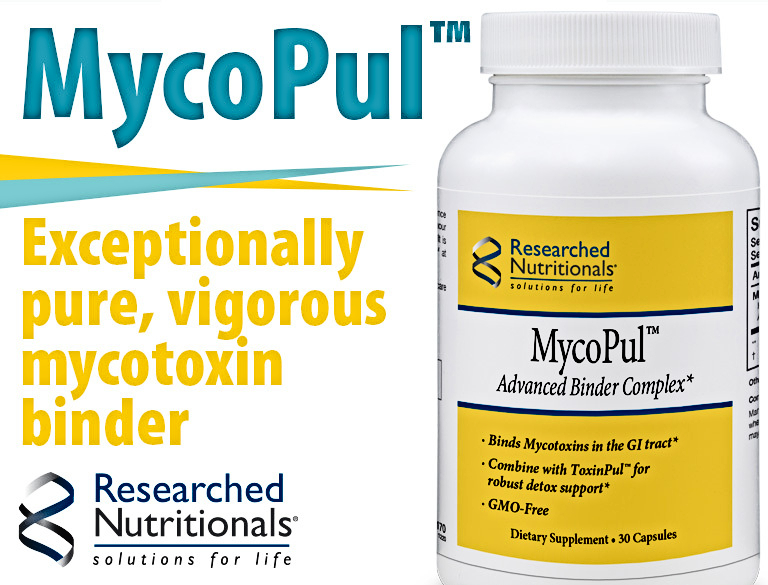By Sean Devlin, DO, HMD, MS
Integrative oncology, in general, refers to the use of a combination of complementary and alternative medicine (CAM) therapies in conjunction with conventional cancer treatments. It has been defined in different ways, but there is no widely accepted definition. For our purposes in this article, I will provide you a couple of definitions below.
1. Integrative oncology is a branch of medicine that utilizes a wide variety of resources to empower patients with information and treatment, involving everything from lifestyle modification to prescriptive therapies. These involve exercise, diet, and nutritional recommendations. It also includes mind-body medicine, spirituality and spiritual practices, natural medicines, homeopathic remedies, body work, counseling, acupuncture, Chinese herbal medicine/traditional Chinese medicine, detoxification, oxidative therapy, orthomolecular medicine, naturopathic remedies and immunotherapy, traditional herbal medicines, ‘Off Label’ prescriptive medications (repurposed drugs), fractioned chemotherapy, metronomic chemotherapy, dose dense chemotherapy, targeted therapies, hormone modulation and/or blockade, pharmaceutical immunotherapies, radiation therapy (including brachytherapy, hyperthermia and proton beam therapy), and general supportive care.
2. The Journal of the National Cancer Institute definition: “Integrative oncology is a patient-centered, evidence-informed field of cancer care that utilizes mind and body practices, natural products, and/or lifestyle modifications from different traditions alongside conventional cancer treatments. Integrative oncology aims to optimize health, quality of life, and clinical outcomes across the cancer care continuum and to empower people to prevent cancer and become active participants before, during, and beyond cancer treatment.”
There is a looming explosion of cancer diagnoses on the horizon. From the aging ‘Baby Boomer’ generation to the ‘lost year’ of cancer screenings due to COVID -19, we face a growing wave of future cancer cases. Advanced stage cancer is one of the most lethal and anxiety-provoking diagnoses anyone can get, and it is growing at a significant rate around the world. It carries with it a high level of morbidity and mortality, not to mention a high financial burden to the patient and our healthcare system.
Even as our knowledge base grows in the field of oncology, we are still struggling with advanced staged cancers. Diagnostically we have been gradually adopting advanced genomic testing of patients and their tumors to better provide personalized treatment plans. We have added numerous targeted therapies, small molecules, Car-T therapy, and immunotherapies to our armamentarium. However, we regularly rely on more ‘old school’ chemotherapy that has been in use for over 80 years. Patients often fear the effects of chemotherapy and look outside the box for other options that may be less caustic. One of the biggest problems that comes from the realm of cancer drug development is that the development of brand-new drugs is a long, complicated, and costly process; and there is no guarantee that the drug will be successful and/or tolerable.
One solution that has been explored and utilized by integrative practitioners and oncologists has been the use of repurposed medications and natural supplements. Drug repurposing is the idea of using an already approved drug for another disease or disorder away from its initial indication. Medication repurposing of approved non-chemotherapy drugs is an effective strategy to develop new therapeutic options for the treatment of cancer patients, with potentially fewer side effects and at a more affordable cost. Drug repurposing identifies new ways for the use of already FDA-approved and/or investigational drugs.

Concordantly, the Right to Try Act was signed into law in the United States on May 30, 2018. This law is another way for patients who have been diagnosed with life-threatening diseases like advanced stage cancer, who have tried all approved treatment options without satisfactory response, and who are unable to participate in a clinical trial to access certain unapproved, experimental and/or investigational treatments.
Several drugs across numerous pharmacological categories have displayed potential anti-cancer activity in laboratory and clinical studies by regulating several key molecular mechanisms and oncogenic pathways in human cancer and cancer cell lines. Even though many of these medications have been through clinical trials and are mostly FDA approved, they may not have the indication for ‘anti-cancer’ purposes. We will focus on several of these medications, including anti-diabetic drugs, cholesterol medication, antibiotics, and antifungals.
In the world of naturopathic medicine there exists a long list of herbs, extracts, hormones and vitamins that have been used in the prevention, support, and treatment of the cancer patient. For the purposes of this article, we will review a few of the clinically relevant substances.
Many of these natural therapies are safe and complementary to standard medical interventions.
As always, we encourage our readers to work closely with their integrative physicians, oncologists, surgeons, and radiation oncologists, as we feel it takes a village to provide the best possible care to the cancer patient.
Due to the breadth and depth of this topic, we will review some of the more popular medications and natural remedies being used by integrative oncologists in the US and abroad.
Below we have listed them and will discuss some of their background and potential mechanisms of action in regard to cancer therapy.
Metformin: Let’s start with one of the most well-known repurposed medications for supporting the cancer patient. That drug is metformin, a biguanide, which is used as a first-line oral agent for the treatment and prevention of type 2 diabetes mellitus. Metformin has been used in many studies as a single agent or in combination with other drugs for treatment as well as prevention of cancer. Metformin is known to have an antitumor effect through activation of the 5’ adenosine monophosphate-activated protein kinase (AMPK) signaling pathway, the EMT signaling pathway, via epigenetic modification and possible immune modulation.1 Metformin may also decrease the amount of circulating insulin and decrease the risks associated with insulin resistance, diabetes and cancer.2 By lowering circulating insulin there is a decreased anabolic drive for some cancers that over express IGF-1 and insulin receptors.3-5

Doxycycline: Doxycycline is used to treat infections caused by bacteria. It is in a class of medications called tetracycline antibiotics. Doxycycline can stop the growth of bacteria by allosterically binding to the 30S prokaryotic ribosomal unit during protein synthesis. Its mechanism of action in cancer cells and cancer stem cells is just becoming elucidated. In the pancreatic cancer stem cell model, it appears that doxycycline inhibits the FAK/PI3K/AKT pathway and significantly inhibited migration and invasion ability of pancreatic cancer cells.6,7 Further research evidence suggests that doxycycline had synergistic effects with cisplatin, oxaliplatin, 5-FU, sorafenib, and gemcitabine. Dosing is 100 mg a day and can be taken in a month-on, month-off fashion with some of the anti-helminthic repurposed medications. It is important to also regularly use prebiotics and probiotic while taking this antibiotic.
Ivermectin: Initially, the antiparasitic drug ivermectin was approved in humans back in late 1980s to treat onchocerciasis, also known as river blindness, caused by the blackfly-transmitted parasite Onchocerca volvulus in poor populations around the equator.
Research demonstrates that ivermectin exerts antitumor effects in different types of cancer. Ivermectin interacts with several targets, including the multidrug resistance protein (MDR), the Akt/mTOR and WNT-TCF pathways, the purinergic receptors, PAK-1 protein, certain cancer-related epigenetic deregulators such as SIN3A and SIN3B, RNA helicase, chloride channel receptors and preferentially target cancer stem-cell like populations.8,9 Through the PAK-1 protein, ivermectin can induce autophagy (which is the self-eating cell death process). Ivermectin induces caspase-dependent apoptosis, which has two pathways, an intrinsic and extrinsic one. Both ultimately lead to cancer cell suicide. Ivermectin inhibits mitochondrial respiration by decreasing the activity of respiratory complex I enzyme. For many patients with healthy livers, ivermectin can be introduced alongside other chemotherapeutics and treatment programs as an adjunct anti-cancer therapy.10 Also of interest, ivermectin is currently being looked at strongly as an agent to treat and possibly prevent COVID-19. Dosing may vary between 150-200 mg/kg and given on an intermittent or pulsed schedule.
Atorvastatin: Atorvastatin is a synthetic hydroxymethylglutaryl coenzyme A (HMG-CoA) reductase inhibitor. Atorvastatin reduces levels of total cholesterol, low-density lipoprotein (LDL)-cholesterol, triglycerides, and very low-density lipoprotein (VLDL)-cholesterol and increases high-density lipoprotein (HDL)-cholesterol (which is cardioprotective). It is commonly used in adult primary care and by cardiologists to treat elevated cholesterol and dyslipidemia. Large data pools were analyzed recently due to the thoughts that statin use may cause cancer or contribute to cancer progression. The analysis found that statin use was not associated with increased risk and that the use of statins was significantly associated with a reduction of mortality in colorectal cancer patients. Several mechanisms responsible for anticancer effect in colorectal cancer patients were the induction of apoptosis by down-regulating anti-apoptotic proteins, inhibition of cellular proliferation, or inhibition of angiogenesis.11 This statin also triggered autophagy (cancer cell self-eating) in cervical cancer tumor xenografts. Dosing of this medication ranges from 20-80 mg. Labs need to be closely monitored; the side effects of myositis and general muscle soreness is the usual reason this medicine is stopped. Also of note, it may be necessary to use CoQ10 as a supplement as these statins can deplete this coenzyme.
Mabendazole/Albendazole: Mebendazole is a broad-spectrum anti-helminthic drug, in the same class as albendazole, flubendazole, oxfendazole, and fenbedazole. Anti-parasitic action of azoles is due to their action as a microtubule-disrupting agent acting to prevent the signaling of growth and maturation of tubulin in the gut of helminths, causing the parasites to die.
Tubulin is vital to cell division and is therefore a cancer target for several chemotherapy drugs, including paclitaxel, colchicine, and vincristine.12,13 Dosing can range from 100-200 mg orally, and this medicine is best tolerated when taken with food.
Niclosamide: Niclosamide is an FDA‑approved anti-helminthic drug and may elicit antineoplastic effects through direct STAT3 (Signal transducer and activator of transcription 3)
inhibition. The STAT3 signaling pathways regulate the gene expression of proliferation, survival, migration and invasion, as well as angiogenesis that supports the growth of cancer cells and tumors. This anit-helminthic drug may also help checkpoint immunotherapy work better in non-small cell lung cancer.14,15 Dosing ranges from 1500-4500 mg per day.
Article continues on next page…







